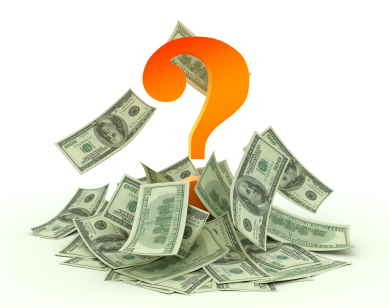Previously I discussed some of the pros and cons of signing a non-exclusive contract to get your music licensed. It’s definitely an interesting option and can provide a lot of opportunity. But before you go uploading your music to Pump Audio, why not consider all options?

Exclusive deals can be very rewarding experiences not just from a monetary stand point (though that’s certainly nice), but also from an artistic one. However, they’re definitely not as easy to come by and there can be other drawbacks to signing on with a major publisher or label.
Let’s check out a the pros
Pros:
- Perceived Value is Higher
- Retain Greater Performance Royalties
- Better Synch Fees
- Better Percentages
- Creative Control
It all starts with perceived value
When I was pitching music for ads at a music library it was usually a struggle to get them to consider a library song versus a commercial track. In most cases I got the phone call only when the budget was low and not before.
Was the music quality THAT much different between the two tracks? Generally speaking, no. In many cases you could easily send a library track and commercial track and save for the name attached to it have no idea which was which. That’s the power of perceived value; big money opportunities are more available.
Performance royalties, sync fees, and percentages…
The number 1 fantastic thing about an exclusive deal is that all fees and percentages are negotiable. It doesn’t matter if you’re U2 or You Who?, you too (see what I did there?) CAN negotiate to some extent (and I’ll talk about how to do that as a little guy in a future article).
The bottom line is: any additional percentage you can get negotiate pays dividends.

Creative control
For the most part music doesn’t get pitched for political or religious advertisements just out of principle. However, how stoked would you be if your song got placed in an ad for a discount furniture store? If your answer is “ehhh,†that should be a clue about which contract to pursue.
Think of all the products you see at your local drug store and if any of those (like adult diapers or prescription drugs) are not something you’d want to attach your music to, then creative control is an important thing for you. You also get the opportunity to turn down jobs that don’t pay enough (you hoity-toity art-nerd).
Looking at the list initially it may seem like a no-brainer – hit the pavement and get after a major label or publisher. But hold on, there are some cons to consider before you go hucking your wares to Universal.
Cons:
- Difficult to secure
- Lost in the shuffle
- Are they pro-active?
- Organization
Don’t overlook how difficult it can be
It can take years. In fact they can just not happen at all. However they DO still happen and they are out there. If you decide to go for it, do it with all your heart and soul. Just know that like anything worth having, it is tough work!
Lost in the shuffle
Major labels and publishers have some pretty amazing music to tout when it comes to placing music in film, TV, and advertising. On top of that, they also have a ton of other music that is maybe not so amazing, but that they still need to make money on.
For that reason its possible you’ll get lost among the other artists in the catalog. You might make the same case for non-exclusive style companies, but keep reading as the next two items are what REALLY separates the wheat from the chaff.
Are they pro-active?
Many companies are changing but still far too many wait for the phone to ring or depend on clients to reach out to them. So sure, they may get a call when someone has $200K to spend on a Super Bowl spot, but guess which artists get first dibs on that kind of money? So if you’re not a superstar, you need to MAKE SURE the company you’re signing with is abreast of as many opportunities, large and small, as possible.

Organization
They’re not sure who wrote what, they don’t have useful systems in place to help them find the right music, and maybe they don’t even know who represents the other side of the sync placement. Yikes. This means you could miss an opportunity simply because the company doesn’t know some critical business facet. Some entities really have it together, and some can barely make it to work.
In the end, whichever route you decide to go just be aware of the potential caveats. Now there are more and more people offering services and opportunities to up-and-coming writers. If you do your homework, chances are you can land somewhere that will be a great fit!
As always please leave a comment with your own stories. I’m always looking to hear more about your experience and answer questions!
 One question has come up consistently over the years whenever artists come across a company like Pump Audio or Crucial Music. After reading through their sites an artist see the term “…represented on a non-exclusive basis…” and gets excited.
One question has come up consistently over the years whenever artists come across a company like Pump Audio or Crucial Music. After reading through their sites an artist see the term “…represented on a non-exclusive basis…” and gets excited.
 That said you may have 50 scratch tracks sitting around from 1994 and weirdly, people aren’t listening for that sweet Ace of Bass sound anymore. Or, you may be in a rock band but have a bunch of film trailer tracks that you did for fun that are just collected digital dust – upload away! In this case, it’s bonus money for songs you don’t really care about.
That said you may have 50 scratch tracks sitting around from 1994 and weirdly, people aren’t listening for that sweet Ace of Bass sound anymore. Or, you may be in a rock band but have a bunch of film trailer tracks that you did for fun that are just collected digital dust – upload away! In this case, it’s bonus money for songs you don’t really care about. But if I say “hey, I JUST released my new EP – it sounds awesome! I recorded in the same studio with the same engineers as Arcade Fire and it was produced by a guy who’s got 5 top fifty songs to his credit,” well, which one do you think sounds more expensive?
But if I say “hey, I JUST released my new EP – it sounds awesome! I recorded in the same studio with the same engineers as Arcade Fire and it was produced by a guy who’s got 5 top fifty songs to his credit,” well, which one do you think sounds more expensive?